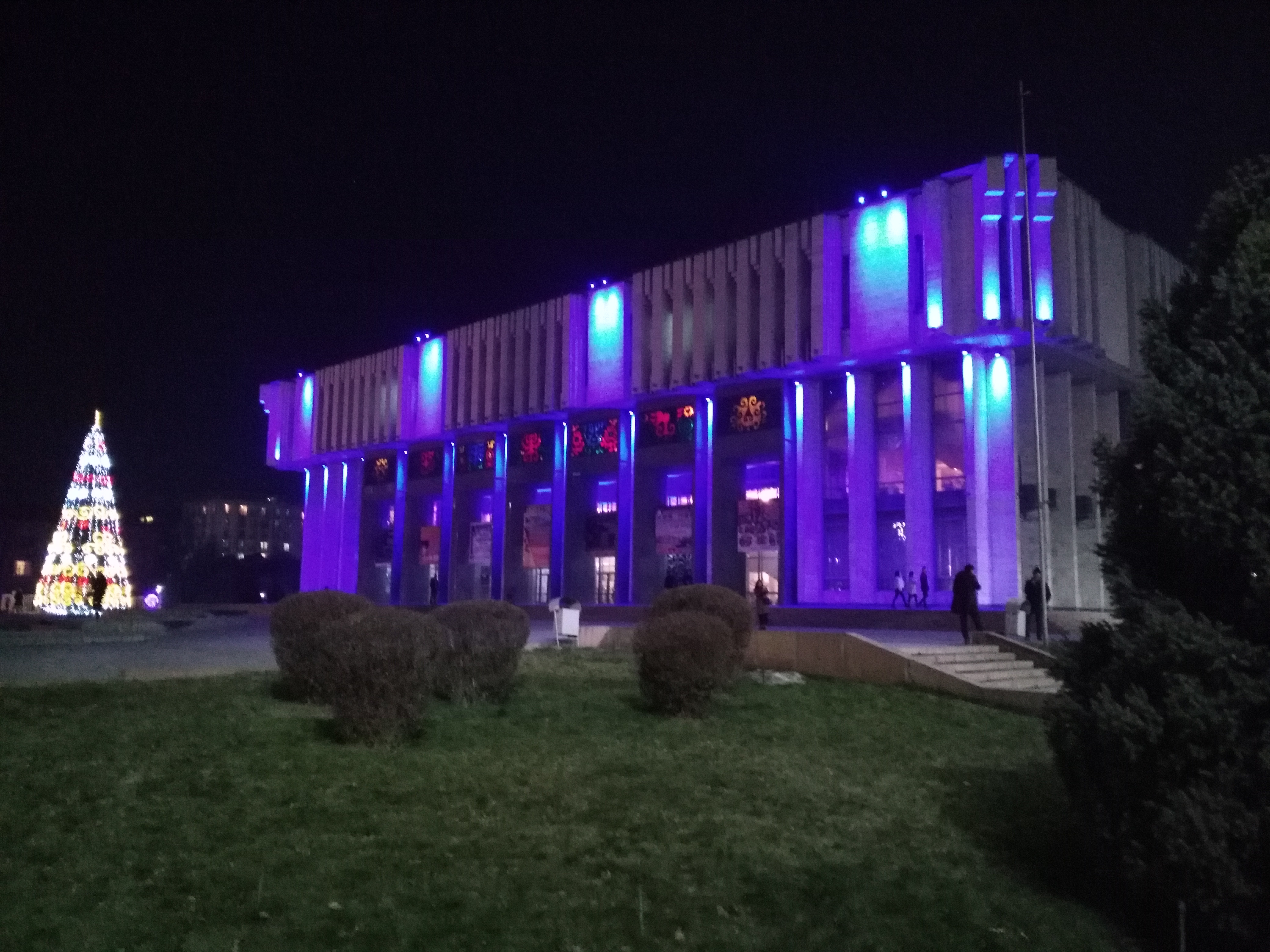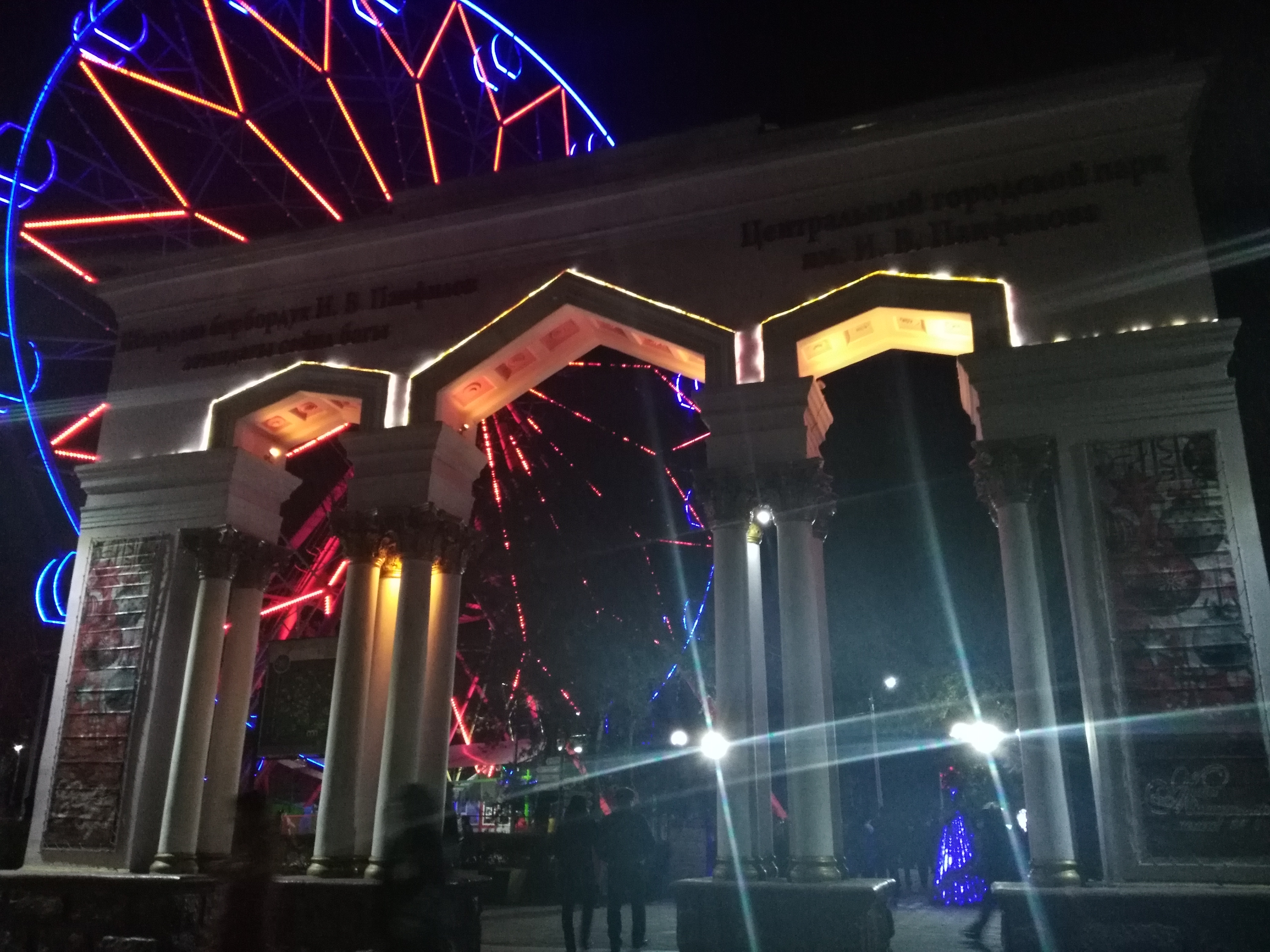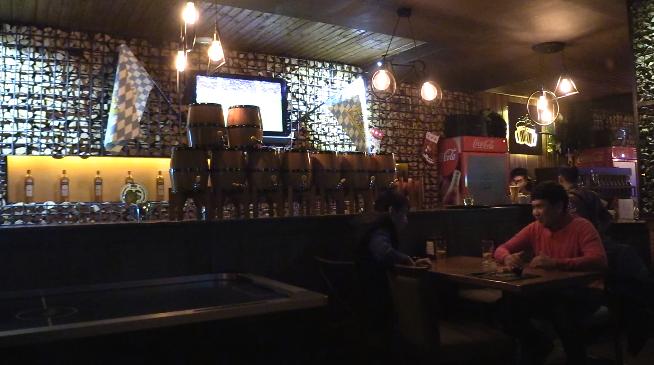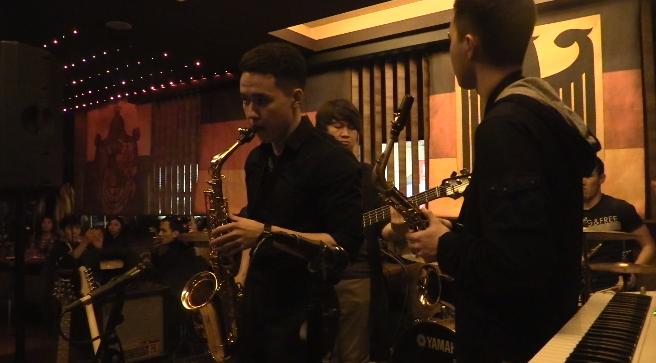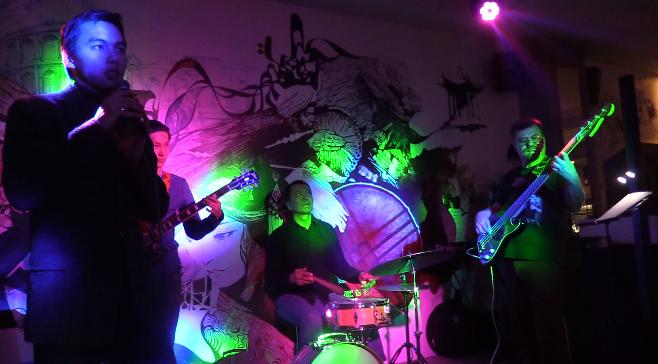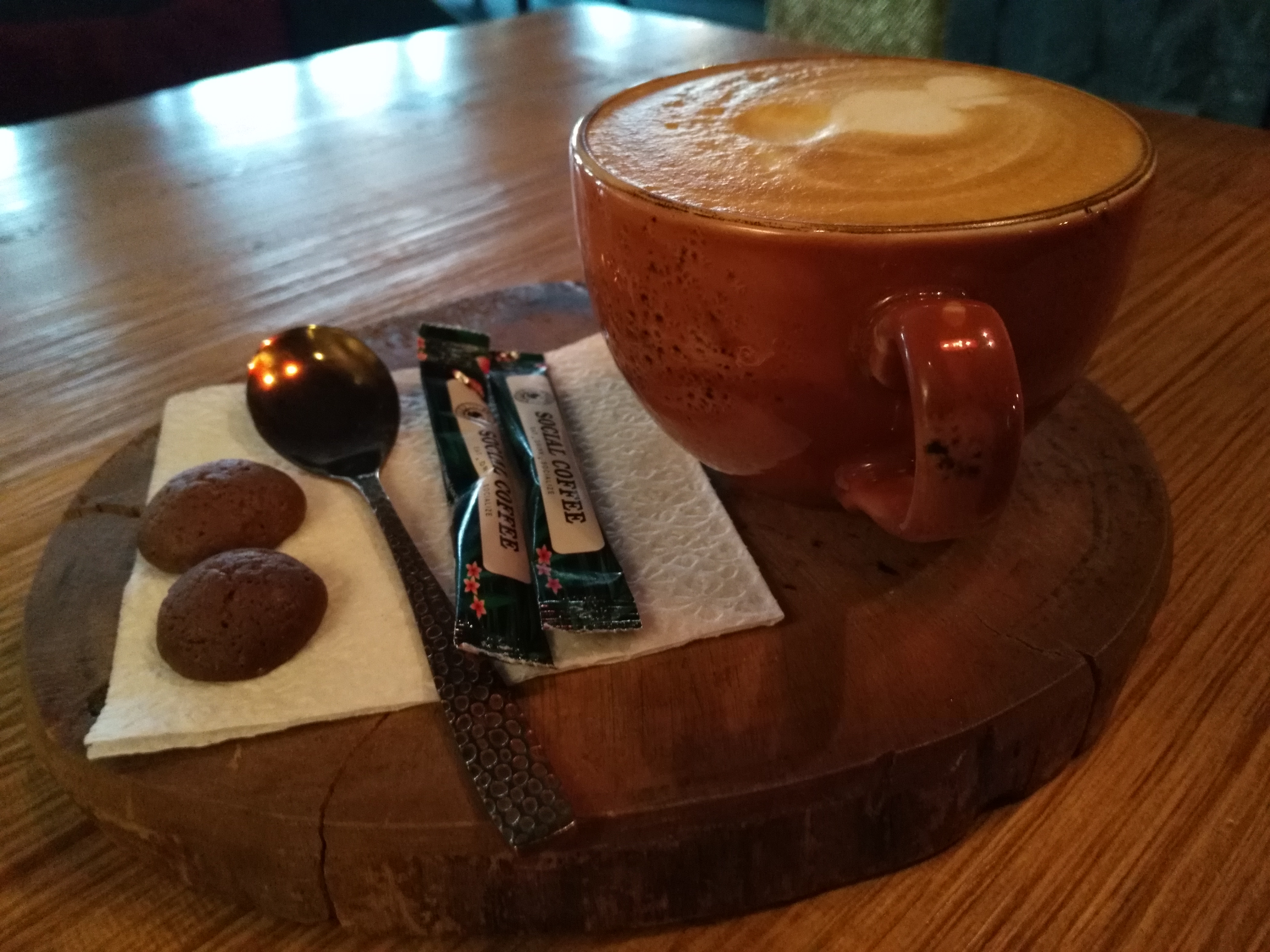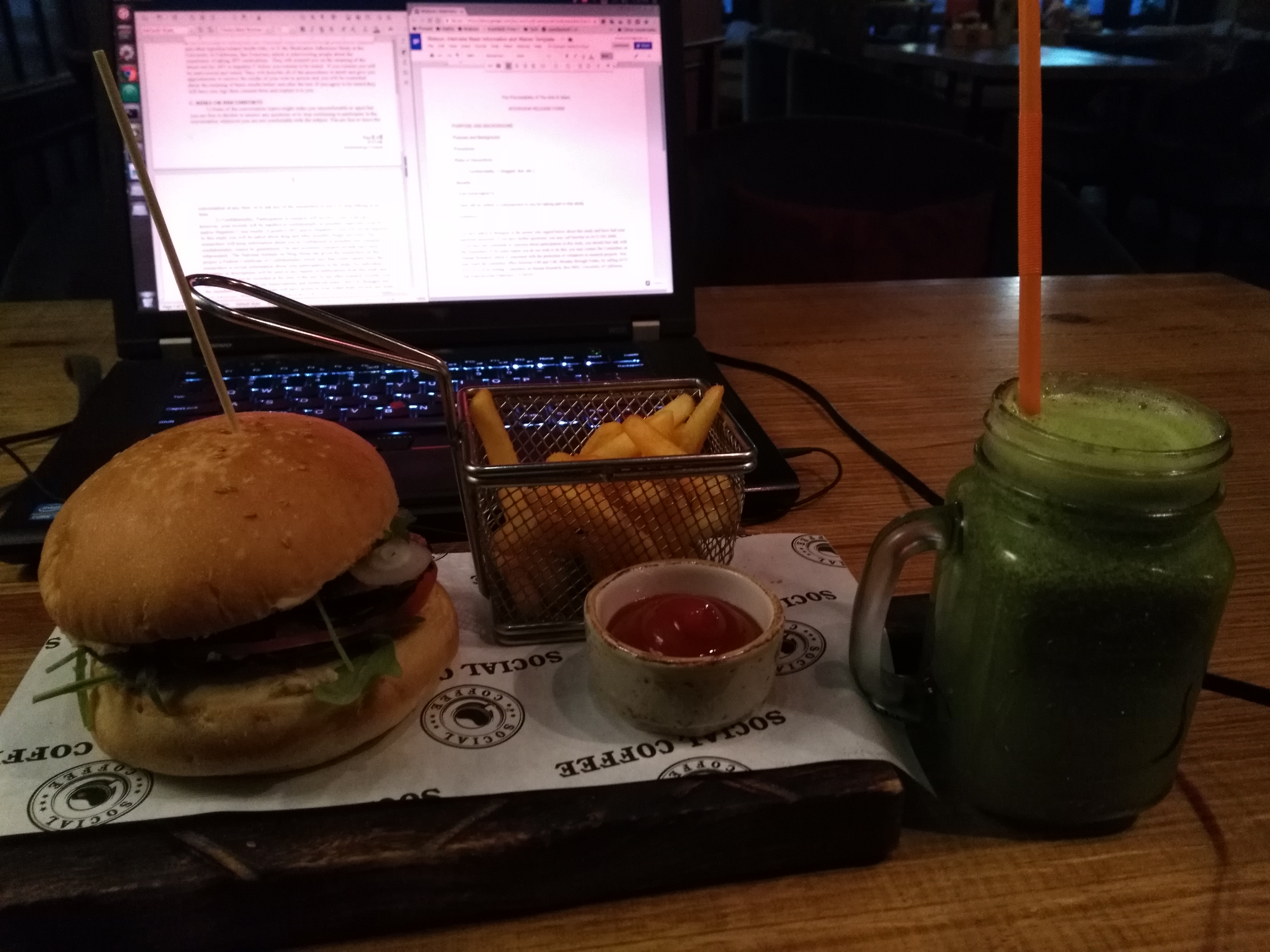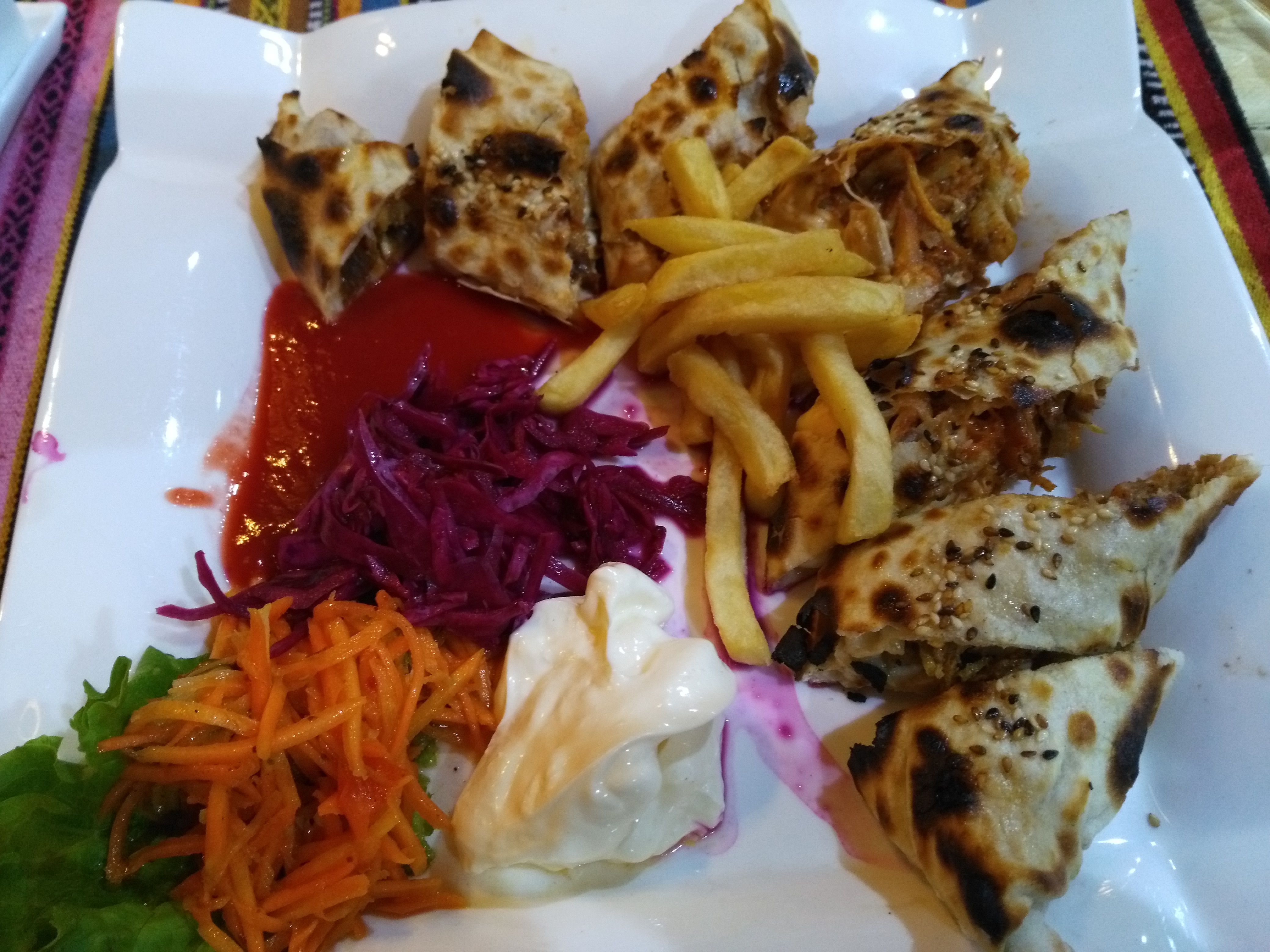Jam Session Cultural Disorientation
24 Dec 2017
Reading time ~9 minutes
I must say that locating people and events relevant to my project has been a tad bit trickier than it was back in Southeast Asia. It’s not that my project is necessarily less appropriate to be carried out in Central Asia. The fact that most of the people I’ve been meeting here in Bishkek did not grow up in religious environments has been a nice contrast to the relatively high number of religious people that I got to know in Indonesia and Malaysia. In addition to interviewing people as per usual, I got around to checking out some local jazz at the Munchen Pub and the Hyatt Regency in Bishkek, where I was able to connect with this week’s three interviewees: Islam (saxophonist), Bakyt (drummer), and Adilet (vocalist). The jam session at Munchen pub was a particularly eclectic scene as it offered singing in English, Russian, Kyrgyz, and Bengali (courtesy of me, of course) in order of prevalence. English is not quite as big as it was back in Malaysia, but it’s certainly gaining traction and seemingly, dare I say, the language of choice for open mic nights in Bishkek. I couldn’t help but think that nearly every Bishkek local was plugged into the likes of Ed Sheeran and Katy Perry while such superstars of the UK and the US let alone the general publics of Western countries probably don’t even know of the existences of countries such as Kyrgyzstan, Tajikistan, Turkmenistan, or Uzbekistan (Kazakhstan is somewhat of a special goose due to the commercial success of the film “Borat”, fortunately or unfortunately). Honestly, how many of those countries did you really know about prior to reading that sentence? (feel free to admit your ignorance in the comments section).
Interviews in Bishkek
Islam Isaev, Saxophonist With “Jdin”

My first interviewee in Central Asia, Islam, calls himself at best nominally Muslim. In other words, he’s not the most religious person in the Muslims world. I couldn’t help but imagine someone from the States with a Christian background with a relationship to their name analagous to that of Islam’s, e.g. someone named Christianity who wasn’t a practicing Christian. As it happens, Islam is not an uncommon name among Muslims, so the situation is certainly not as ironic as it seems for someone passably Christian named Christianity. Alright, massive non-sequitur aside, Islam (from now on, I’ll refer to him by his last name, Isaev) is currently a sophomore at the American University of Central Asia, a few-years-old institution generously funded by the United States that felt to me more like a really nice private high school in the US than the kinds of higher education institutions I’ve been around in the US. Isaev’s relationship with Islam more or less epitomizes the rather flaccid state of Islam among creatives in Krygzystan’s capital city of Bishkek. He articulated to me that, in his opinion, the essence of religion ought to be in one’s heart and mind as opposed to one’s body movements and actions. Thus, he still believes in God and values spirituality in life, which is actually a rather tall order among the Kyrgyz artists I’ve met with so far in Bishkek. As he generally does not associate with religious circles, Isaev’s musical journey has been rather sheltered from the anti-arts influences of puritanical Muslims. However, he was able to recount to me several instances back in his primary schooling days of being berated by puritanical Muslim types on his walk to school while holding his saxophone with him. As with many Muslim laity with anti-arts leanings, such Muslims simply told Isaev that music was haram and that his instrument was haram without offering proper explanations for said pronouncements.
Apparently, Muslims berating kids and teenagers for having or playing musical instruments on the streets happens more often than one might wish as just about a majority of the musicians I’ve intereviewed thus far on my travels have shared with me situations in which they’ve faced something along the lines of what Isaev shared with me during our interview. Isaev expects that this phenomenon may actually be disporportionately common in segments of Central Asia such as Bishkek precisely because religious teachers and figures don’t have the same institutional outlets that they enjoy in Muslim majority countries such as Malaysia where Islamic studies are formalized in state school curricula. Whereas particularly vocal representatives of Islam may vent their anti-arts sentiments perfectly comfortably in classrooms in Southeast Asia, their counterparts in relatively irreligious locales in Central Asia are relegated to rant on the streets or on social media (“facebook imaam” is the infamous term for such self-proclaimed experts of religion who torment well-meaning individuals with their judgemental might from the comfort of their bedrooms). By the end of our interview, Isaev had laid down a couple of potent retorts for the typical puritanical Muslim with a disapproving or lukewarm attitude towards the arts - 1. Why do Muslims “sing” the prayer call and Quran before and during ritual prayers if singing is haram? 2. God created us to make use of the talents He imbued in us for our personal betterment, the well-being of our families/households, and the betterment of our societies. To refuse to accepts God’s gifts/blessings is unacceptable.
Bakyt, Drummer/Bandleader With “Salt Peanuts”
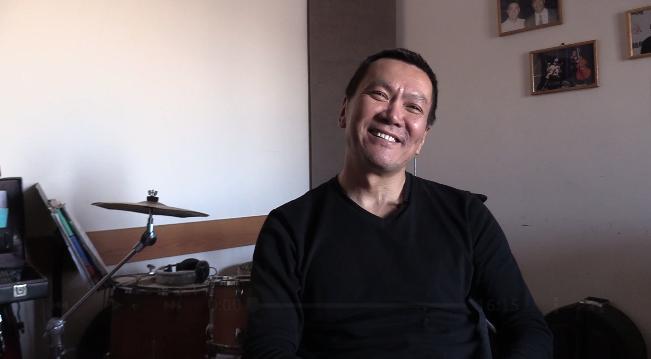
Nearly everyone I’ve met with so far in Bishkek have emphasized to me right off the bat either than Kyrgyzstan is a secular state or that during the Soviet era (which only officially terminated in 1991) atheism was a part of state school curricula and all people were at least officially atheist. My second interviewee of the week and drummer/bandleader of the well-renowned Jazz group Salt Peanuts was no exception to this rule. Bakyt Kydykbayev grew up in a non-religious household, but he fed his curiosity for religion and spirituality from a young age on his own accord, delving into the spiritual and artistic worlds of Christianity, Islam, Buddhism, etc. His rendevous into church music and paintings alerted him to just how embedded traditional arts in the West are in the realm of the sacred.
What prompted Bakyt to delve deeper into the place of the arts in Islam was a bit more focused, however. About five or six years ago, a rather talented student of music at the Kyrgyz National Conservatory, where Bakyt currently teaches, dropped out of school particularly due to his increasing anti-music convictions inspired by Islamic teachings. The student’s marked increase in religiosity manifested in him praying during classes and skipping classes apparently for religious reasons. Rather baffled by the student’s behavior, Bakyt told me that upon looking into the place of arts in Islam he was immediately confronted with controversy and much gray area. Though several religious figures Bakyt has been aware of or exposed to over the years have emphasized that various sectors of the arts are to be demonized, several of Bakyt’s Arabist and Islamicist friends contend that such “religious figures” actually have very poor commands over the Arabic language and Islamic studies. Indeed, most of the individuals Bakyt has encountered who are better informed in these fields largely dismiss the generalizing and reductive tendencies of “religious figures” who uniformly denounce all sorts of things in life in addition to arts consumption and production. Of course, this is not to say that there haven’t been well-esteemed scholars throughout history with virtuosic abilities in the Arabic language and Islamic studies who’ve been especially critical of certain forms of sound-art or visual-art performance in society. At any rate, as Bakyt is not and has never been religious himself it’s not very often that he meets “religious figures” damning his drumsticks or lecturing him on the illegitimacy of swing.
Adilet, Jazz Vocalist With “Salt Peanuts”
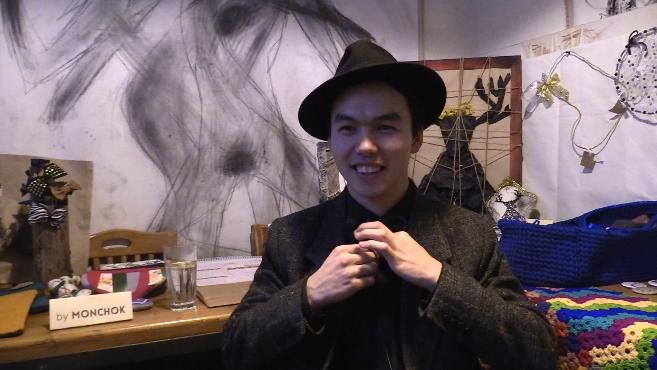
My last interviewee of the week is yet another man from a not so religious family, Adilet, vocalist for the aforementioned band “Salt Peanuts”. Though it was clear to me that none of my interviewees this week were orthodox anything’s, Adilet was most direct and vocal in his critique of religion. Adilet and Bakyt’s relationships with spirituality are somewhat similar in the fact that the two temporarily grew interested in religion many years back. In 2011, Adilet found himself regularly praying at mosques primarily because doing so offered him a newfound sense of tranquility. By that age, he’d already long been a devotee flamenco and other musical forms. By the end of 2011, he gave up practicing Islam and instead opted to focus his energies once again solely towards music making. Adilet assured me that his decision to leave Islam was not at all informed by anyone telling him that music was haram or that his vocal cords were Satan. Rather, in comparing his engagement with music with that of Islam, he noticed that music offered him peace and fulfillment in the simplest of ways while his striving in the path of Islam was riddled with complexity and adversity. To each their own, I suppose.
Tasty Treats in Bishkek: Pt. 2
The good stuff just keeps coming…


